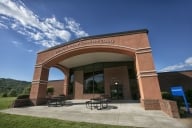You have /5 articles left.
Sign up for a free account or log in.
Six weeks after Mayor Rahm Emanuel replaced five members on the City Colleges of Chicago’s seven-member Board of Trustees, he has endorsed a plan to replace five of the system’s seven college presidents.
“The City Colleges has set a goal of becoming a world-class community college system which ensures the success of every student,” Emanuel said in a statement released Thursday afternoon. “With this leadership, CCC will be ready to realize its potential as the economic engine of our region and ensure Chicagoans are prepared with the skills to succeed in today’s competitive global economy.”
In February, the Board of Trustees changed the job description of college president at its seven institutions and encouraged new candidates to apply, while telling the incumbents they have to reapply if they want to keep their positions. The new job descriptions for the college presidents include “specific performance measures and goals that these individuals must achieve.” The change was billed as yet another step in Chancellor Cheryl L. Hyman’s continuing effort to “hold all faculty and management accountable for the success” of the system’s "Reinvention" plan.
Since this ultimatum to campus leaders, two presidents decided not to reapply for their jobs: Clyde El-Amin, at Olive-Harvey College, and John H. Dozier, at Kennedy-King College. Neither has publicly cited a reason for his decision.
Donald J. Laackman, president of Harold Washington College, was exempt from having to reapply for his job. He was hired days before the February announcement, and Hyman noted that he had been hired within the framework of the new job description. José Aybar, president of Richard J. Daley College, is the only incumbent president who successfully sought to keep his job.
"We underwent a nationwide search to find the best leadership to serve our students," Hyman wrote in an e-mail to Inside Higher Ed. "The candidates we are recommending have unique skill sets — they have worked at multiple college systems across the country so they have a broad perspective on national best practices, each demonstrated a commitment and understanding of our students, and a track record of success in entrepreneurial or change environments.
"We are fortunate to have President Aybar among the candidates. He has proven himself as an innovator who is not afraid of accountability and is willing to think creatively to ensure our students' success. I am not going to speak about why certain candidates were not recommended, except to say that we had an outstanding group of candidates from which to choose and this was a difficult decision, but we are confident that these candidates will help us to reach our student success goals."
The remaining five colleges will have new leaders, including Anthony Munroe, at Malcolm X College; Craig T. Follins, at Olive-Harvey College; Reagan Romali, at Truman College; and Jim Palos, at Wright College. A candidate has not yet been selected for Kennedy-King College. Officials say a national search for this position continues.
The five individuals endorsed Thursday by Emanuel for new presidencies were recommended by Hyman and Martin Cabrera Jr., chairman of the Board of Trustees. The recommendations will be considered by the full Board of Trustees at its June 16 meeting.
Faculty union officials, who were apprehensive about February’s announcement that all of the system’s presidents must reapply for their jobs, had a mixed reaction to the new slate of campus leaders.
Perry J. Buckley, president of the Cook County College Teachers Union Local 1600, the American Federation of Teachers union that represents City Colleges of Chicago faculty members, said union members had worried that the new candidates would be primarily from the business community and not have academic backgrounds.
He cites Hyman’s selection of Laackman, the new president of Harold Washington, as an example. Laackman was previously a principal at Civic Consulting Alliance, managing its workforce and education program areas. He also served as managing director at Accenture, a leading "consulting, technology, and outsourcing" firm. Also, Hyman herself has a nontraditional background for a college leader. She was formerly vice president of operations strategy and business intelligence at ComEd, the largest electric utility in Illinois.
The four newcomers, however, have academic backgrounds. Follins, the candidate for Olive-Harvey, was previously executive vice president of workforce and economic development at Cuyahoga Community College, in Ohio. Romali, the candidate for Truman, was chief operating officer in charge of launching Houston Community College System’s Community College of Qatar. Munroe, the candidate for Malcolm X, was executive administrator of the Ross University School of Medicine Bahamas Campus, a for-profit institution. Palos, the candidate for Wright, founded and served as president of the Institute for Media and Entertainment, a private business school in New York City.
“I was expecting worse,” Buckley said. “I was expecting we’d get all business people, given that we’ve heard over and over again, ‘We want to run City Colleges on a business model.’ ”
And though Buckley said he “can only be optimistic” about the selections so far, he admitted he does have some concerns about all of the turnover in system and campus leadership.
“There’s going to be no one at the table with institutional history and memory,” Buckley said. “When there’s no one who has the background of who we are, then that can create problems. We’re such a complex entity on so many levels. Basically, it’ll be everybody new with no sense of how we got to where we are today…. It’s going to be interesting.”
Hyman did not appear to view the relative newness of many of her presidents and board members as a cause of concern.
"We have a tremendous opportunity at City Colleges to transform our institution to ensure every student who comes to us can succeed," she wrote via e-mail. "To help us realize this vision, we have a great body of faculty, staff and students and we rely heavily on their expertise and experience to guide us. Our leadership team must set the vision and provide a clear set of goals and support to our faculty and staff. I believe, in our presidential candidates, we have dynamic individuals who will both listen and lead — and ultimately be able to ensure our students' success. We are also fortunate to have board members with extensive experience in education and leadership, deep knowledge of our city and its institutions, and a broad perspective on how community colleges especially can better prepare students to succeed in a global economy. I am very excited about the team we are assembling and the opportunity we have to significantly improve outcomes for City Colleges students."








